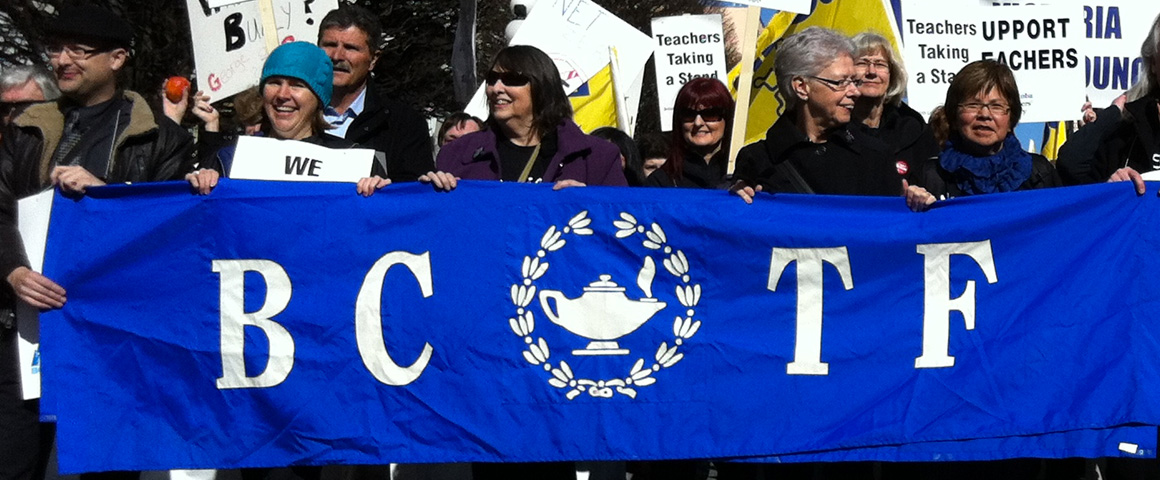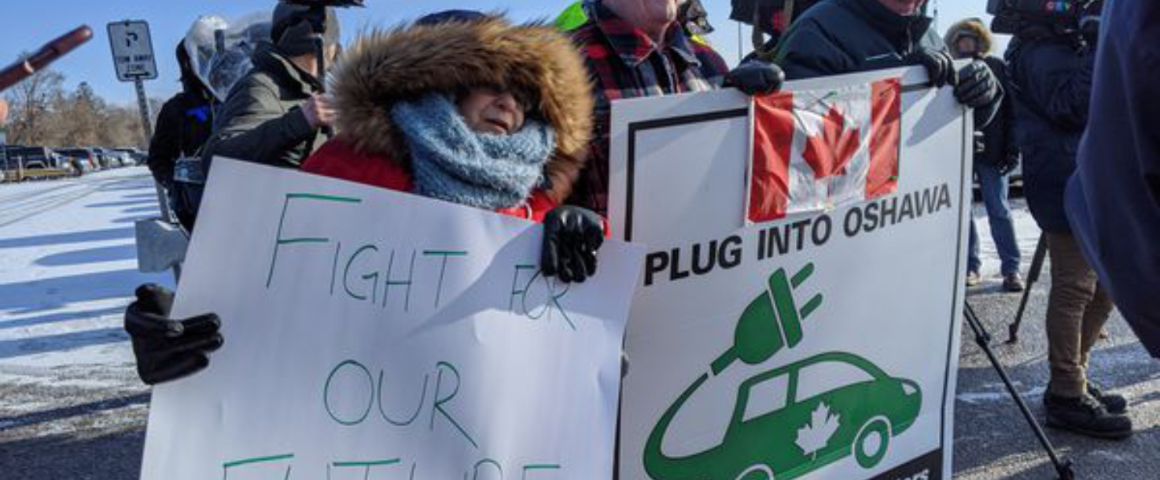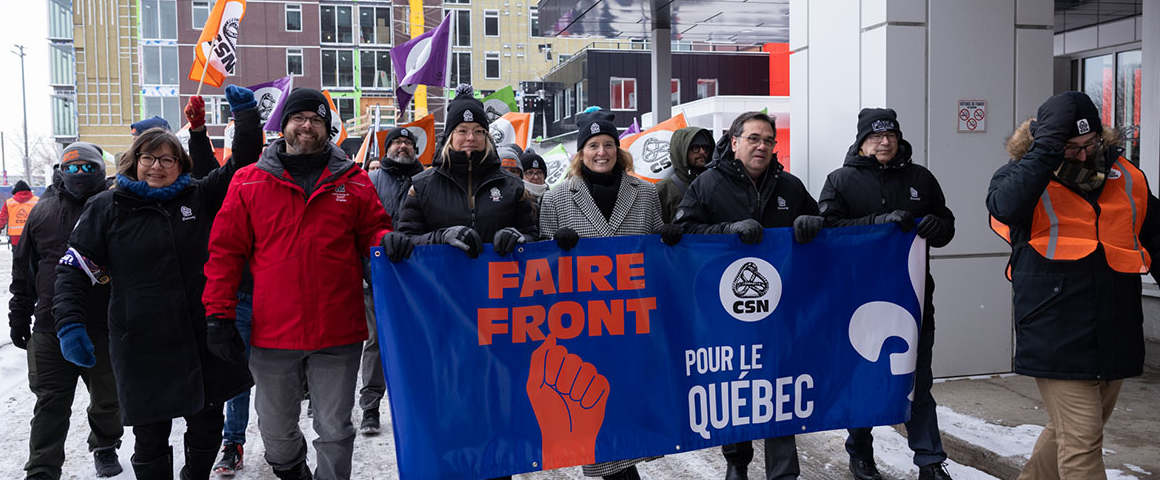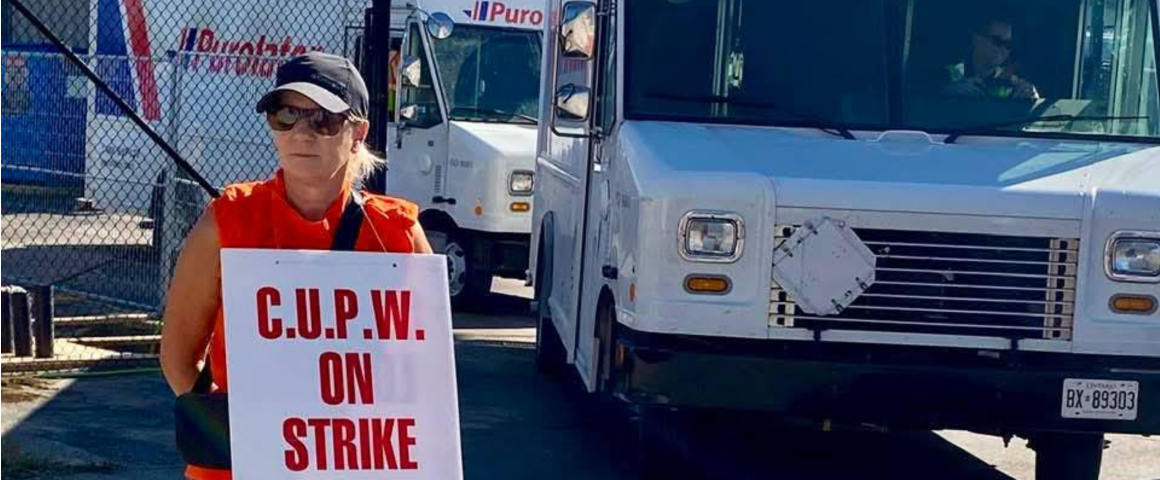Less than four months after their historic victory at the Supreme Court of Canada, the BC Teachers’ Federation has won an agreement with the BC Public School Employers’ Association and the provincial government. The BCTF reports that the agreement fully restores all of the substantive collective agreement language that was unconstitutionally stripped in 2002 by then-Education Minister Christy Clark.
BCTF President Glen Hansman said the agreement “will allow the next school year to start with thousands more teachers, smaller class sizes, better class composition, and specialist-teacher ratios. BC teachers have been fighting for 15 years to defend our rights and to restore our working conditions… This agreement will mean the beginning of a new chapter in public education in BC, one in which teachers will once again have the time to give students the individual care and attention they need and deserve. School libraries and counselling offices will be re-opened, shop and lab classes will have safety standards restored, and all classrooms will be properly supported.”
“Now,” said Hansman, “teachers will see full restoration of our working conditions. Schools right across BC will see smaller classes, more specialists like counsellors, special education teachers, and learning assistance teachers, and more support for children with special needs.”
The tentative agreement was approved by the BCPSEA’s process, and by BCTF members, who voted March 8-10.
In January, the government agreed to fund 1,100 new full-time teaching positions for the current school year. Many of those positions are now filled and those teachers are already supporting students.
Hansman expressed his gratitude to BC’s 41,000 public school teachers for standing with their union in defence of their rights. “Thank you to all of BC’s public school teachers, present and past, for all of your support over the years, your tenacity in defending our rights, and commitment to standing up for your students. It took 15 years, but we are on the verge of having our language back and restoring what was wrongfully taken away.”
Meanwhile, however, a new report into last fall’s firing of Vancouver’s nine school trustees raises some disturbing questions for the future of democratic involvement in the public education system of British Columbia.
Written by an appointee of the BC Liberal government, the Goldner Report accuses four Vision Vancouver elected trustees of creating a “toxic work environment” in which School Board management were “bullied and harassed.” The report is based largely on one critical event, a September 26, 2016 public meeting of the VSB at Tupper Secondary School. Attended by hundreds of parents and students, the meeting’s agenda focused on a staff report recommending the closure of eleven elementary and secondary schools on the lower-income east side of the city.
The hugely unpopular recommendation came during a long-running struggle against underfunding by the province. That battle saw a huge victory for teachers, students, parents and school trustees just a month later, when the Supreme Court ruling finally compelled the Liberal government restore a huge chunk of education funding.
Under enormous pressure earlier that year, the Liberals had made some minor announcements of funding increases. Just a week before the Sept. 26 meeting, they finally rescinded an arbitrary rule that major urban centres needed to reach a 95% occupancy target before allocating funds for seismic upgrades of schools. Clearly, the heat was on the government to go much further.
Over the years, a favourite Liberal tactic around this issue has been to divert attention by blaming VSB trustees for leading public campaigns to demand adequate funding. Events during the summer and fall of 2016 lead many observers to believe that Liberal officials were attempting to “create a crisis” in the VSB, giving Education Minister Mike Bernier an excuse to fire the trustees.
At the Sept. 26 meeting, former VSB chair Patti Bacchus put forward a motion to suspend the closure process, and calling on city staff to review the enrollment projections used by board management to justify the school closure recommendations. This calculation would be critical in light of the decision to drop the 95% school occupancy requirement. Bacchus’s motion was clearly welcome to parents and students at the meeting, but the Goldner report calls this a form of “bullying” by the Vision trustees. Within days, much of the management team booked off sick, in a transparent attempt to block the trustees from adopting a balanced budget. When that tactic failed, Bernier stepped in, replacing the nine elected trustees with one appointed person.
Responding to the Goldner report, the Vision trustees – Joy Alexander, Patti Bacchus, Mike Lombardi and Allan Wong – have stated that their “commitment was to ensure accountability in the provision of quality, publicly accessible education and sound fiscal management of the school district. Our priority was to make decisions that met the needs and concerns of students, families and communities. We are proud of our track record of advocacy and community engagement and ensuring communities had a voice in decisions that affected them. We treated all VSB staff with respect and courtesy and we did not participate in or witness workplace bullying or harassment. We are concerned to hear the findings of the report and agree that workplace bullying and harassment are unacceptable. All employees are entitled to a safe and respectful work environment.
“While we were under strong pressure from Education Minister Mike Bernier and our senior management team to move quickly to close schools, we stand by our decision to suspend the process. It was the right thing to do. We continue to be concerned by the political interference in the democratic process by the provincial government as a way to deflect from their neglect of public education.”
The May 9 BC provincial election is now just two months away, and the anti-public education record of Premier Christy Clark will be a major issue. The removal of elected school trustees will be hotly debated during the campaign, in Vancouver at least.




